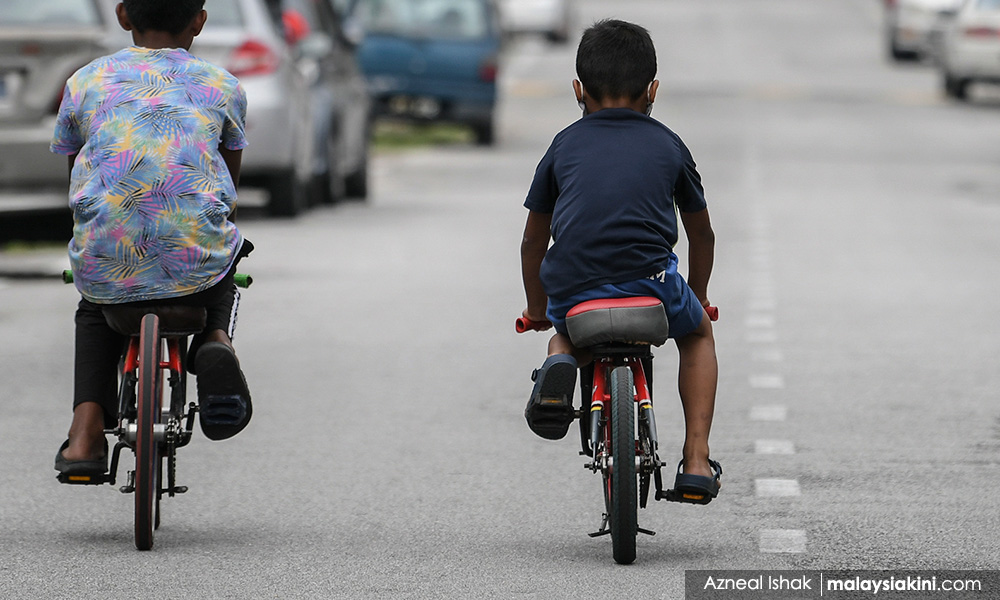Following the government's move to ban micromobility vehicles on public roads, social media was abuzz with questions if it included the infamous basikal lajak (modified bicycles) as well.
A check by Malaysiakini found that those who use bicycles without proper brakes were liable to a fine.
Based on other regulations, the use of modified bicycles on public roads could be deemed an offence.
For example, the Road Traffic Rules 1959 (Kaedah-kaedah Lalulintas Jalan 1959) stated the below examples as violations.
Rule 11: Children not placing their feet on the pedals when cycling. (Basikal lajak is often characterised by the 'superman' position to be more aerodynamic when going downhill)
Rule 35(2): The cyclist does not have a light on the bicycle at night.
Rule 35(3): The cyclist does not have a red light at the rear of the bicycle at night.
Rule 42(1)(A): The bicycle does not have proper brakes.
Rule 42(1)(A): The bicycle does not have a functioning bell.
Rule 42(1)(B): Riding a bicycle using ways other than straddling it.
Rule 42(1)(D): Both hands not holding the handle when cycling.
Rule 42(3): Competing when cycling.

Dangerous riding prohibited
Besides, the Road Transport Act 1987 (Act 333) prohibited dangerous riding on public roads.
The act was amended in August 2020 with the term "micromobility vehicles" added to replace "bicycles, tricycles and electric bicycles".
Micromobility vehicles were defined as "any vehicle that is propelled by electrical means, an internal-combustion engine or human power or a combination of electrical means, an internal-combustion engine or human power, and having a maximum speed of 50 km/h".
There are provisions in this act that can be used against modified bicycles. For example, Section 54(1) deals with cyclists involved in reckless and dangerous riding as well as careless and inconsiderate riding.
Those who commit these offences are liable to a maximum fine of RM5,000.
Section 79(2): Fails or neglects to conform to the indication given by the sign (for instance, bicycles are not allowed on highways). Offenders are also liable to a fine not exceeding RM5,000.
Section 112(3): A police officer or traffic warden may detain any bicycle or tricycle in respect of which an offence has been committed within his or her view.
Enforcement agencies to take action
On Tuesday, Transport Minister Wee Ka Siong said that micromobility vehicles such as mopeds, personal mobility devices (PMD) and personal mobility aids (PMA) were not allowed on public roads.
When the announcement courted brickbats regarding the basikal lajak issue, MCA publicity bureau deputy chief Mike Chong accused "pro-opposition" media of twisting the facts and slandering the minister.
Yesterday, Wee clarified that according to the Road Transport Act 1987, modified bicycles were banned from public roads.
The MCA president clarified that the enforcement agencies would take action if modified bicycles were used on these roads.
He urged the public, who spotted situations which could endanger road users, to report the matter to the relevant authorities.

The spotlight landed on basikal lajak again when the Johor Bahru High Court on April 13 sentenced clerk Sam Ke Ting, 27, to six years' jail for reckless driving in connection with the deaths of eight teenagers on modified bicycles five years ago.
She was also fined RM6,000, and the court ordered that she serve an additional six months in prison if the amount was not paid. - Mkini

No comments:
Post a Comment
Note: Only a member of this blog may post a comment.